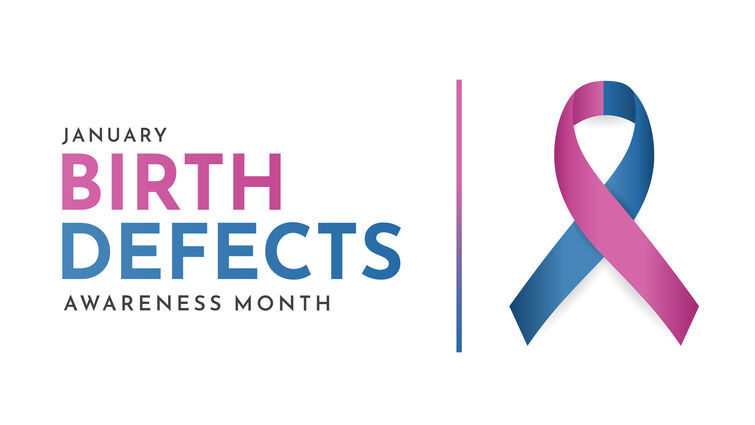
Birth defects are defined by the Centers for Disease Control and Prevention (CDC) as “structural changes present at birth.” These changes can affect nearly any part of a baby’s body and occur while the child is still developing inside the womb. Approximately one out of every 33 babies born in the United States will have a birth defect.
Some examples of birth defects include various cardiac defects, cleft lip or palate, and spina bifida. Ciprian Gheorghe, MD, PhD, says there are many questions and myths surrounding birth defects.
Gheorghe, a maternal-fetal medicine specialist at Loma Linda University Children’s Hospital, breaks down nine common misconceptions.
Myth or Fact?
1. Eating spicy foods while pregnant can cause birth defects.
Gheorghe says this is a myth. There is no evidence to support that at this time.
2. Taking a hot bath while pregnant can cause birth defects.
“This is kind of true but in a very narrow sense,” he says. Avoid hot tubs or baths at a temperature of over 100 degrees Fahrenheit, especially early in pregnancy. “Heat can disturb organ development early on and stress the baby later in pregnancy” Gheorghe says. “Hot tubs are sometimes as hot as 104 degrees, so it’s best to avoid.”
3. Dyeing your hair can cause birth defects due to the dye’s chemicals.
Gheorghe says this is mostly a myth because most hair dye is not toxic. However, some permanent dye can be toxic but not at doses high enough to be absorbed through skin. “There have been some extremely weak association studies, but they are not very convincing,” he says.
4. Exercising while pregnant will harm the baby and cause defects.
“Myth 100%,” Gheorghe says. “Exercise is not the issue; it’s getting injured or falling while you exercise. It’s probably best to avoid extremes.” He advises staying away from contact sports or heavy lifting.
5. Any coffee will harm the baby.
This is not true, Gheorghe says. Eight to twelve ounces of coffee or 200 mg of caffeine per day is considered safe.
6. Chocolate will cause birth defects.
“Chocolate is fine,” he says. “Please don’t torture yourselves.”
7. One glass of wine while pregnant is okay.
This is false, Gheorghe says. Alcohol is known to be toxic for the fetus. Both the American College of Obstetricians and Gynecologists and the CDC recommend complete abstinence as physicians do not know what the safe dose is in pregnancy.
8. Eating any fish while pregnant may cause birth defects due to mercury.
“It’s all about what kind of fish and how much,” Gheorghe says. “Some fish, especially those that are apex predators, can accumulate significant amounts of mercury in their tissues.” For more information, he recommends this chart by the U.S. Food and Drug Administration.
9. It’s unsafe for pregnant women to pet cats.
“Petting cats is okay,” Gheorghe says. “But changing the cat litter on a regular basis is not safe.” Cats are known to carry toxoplasmosis — an infection caused by parasites sometimes found in cat feces — and can be transmitted from mother-to-child during pregnancy. For more information, he recommends this information page by the CDC.
“It’s important to know that only some defects are preventable,” he says. For example, folic acid supplementation is known to reduce the rate of spina bifida and cleft lip or palate. However, Gheorghe says genetics and spontaneous unexplained issues are probably the top reasons for birth defects, and anyone can be at risk.
There are things parents can do before and during a pregnancy to increase their chances of a healthy baby. Make an appointment with your physician to discuss these strategies, or visit our website to learn more about birth defects in children.
